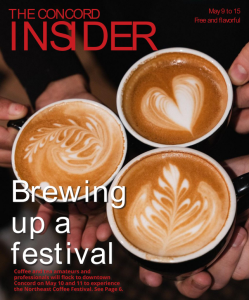By Ben Conant - Dec 20, 2011 | 0 comments
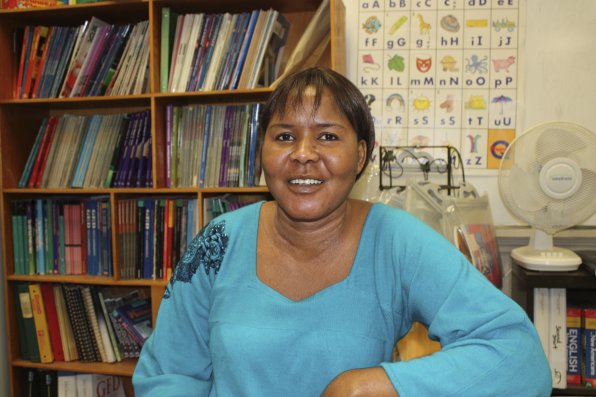
<strong>Viviana Loro</strong></p><p>Loro’s Sudanese Christmas tradtitions seem super fun, like an amalgamation of several of our American holidays.<br />“We would go to church on Christmas Eve and sleep there until the 25th. It’s the same day Jesus was born, and we tell the kids that he might come in the church in the middle of the night.<br />“We didn’t have a Christmas tree, but we always make cookies. It’s like Halloween, children go door to door knocking and asking for the cookies.<br />“Here, it’s different. Starting in November, you have to start buying things. Kids come up with their lists, saying ‘I want this, I want that.’ ”
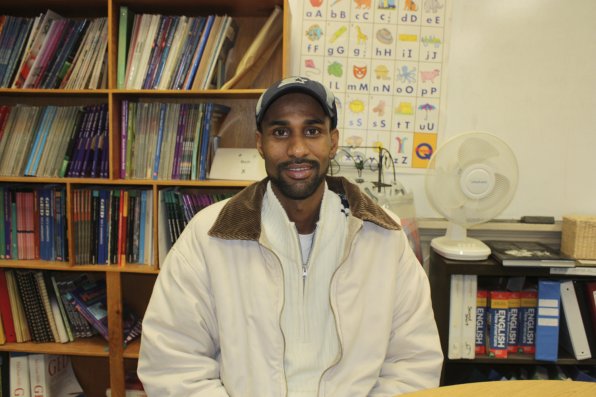
<strong>Jibril Mohamed</strong></p><p>Mohamed, a Muslim, said that he enjoyed celebrating holidays in his native Somalia.<br />“Most of us are the same language, same religion, so we can get together and celebrate. Come together in the same place. It’s different now that I’m here.”<br />He said that both in the United States and Somalia, Somalian youths have embraced American culture and holidays. He noted that Somalia started celebrating New Years Eve for the first time while he was still living there.<br />“The young generations, they change everything. They become like American teenagers. The older people, they can’t change, because they still have the culture.”
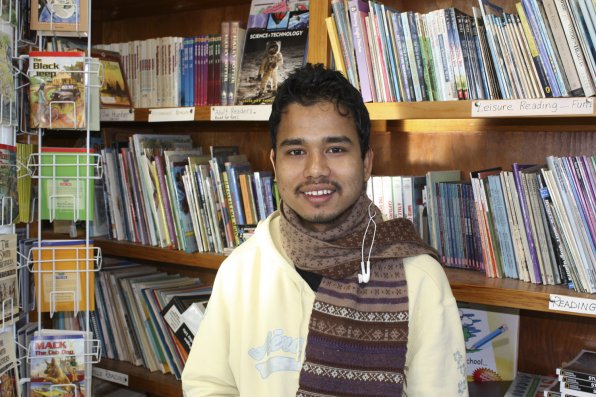
<strong>Purnach Hetri</strong></p><p>Hetri is Buddhist, and the biggest holiday he celebrated in his native country is the National Day of Bhutan, on Dec.17. “All Bhutanese celebrate this day. People play soccer, drink teas. Whole families can gather and sing songs.” “In coming days, we will get something from the market and give it to father and mother.”
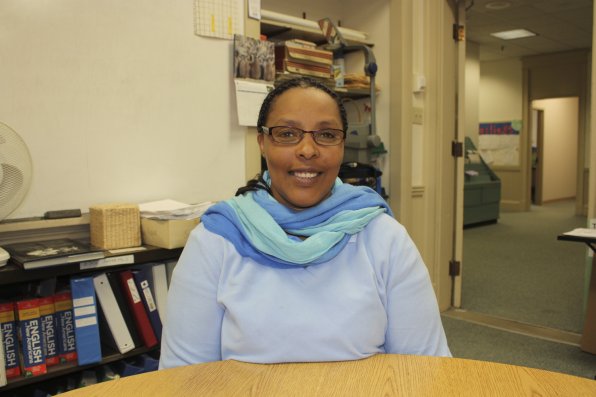
<strong>Marie Musanabera</strong></p><p>Musanabera is all about the traditional Christmas she knows from her time living in Rwanda.<br />“American people, they celebrate by giving gifts to each other. In Rwanda, it’s different. We all go to church. Just church. After, we all visit, have food, listen to church music, everyone wearing new clothes.<br />“In Rwanda, we could go to church on Christmas Eve and Christmas Day. Here, no one goes to church on Christmas Day.”
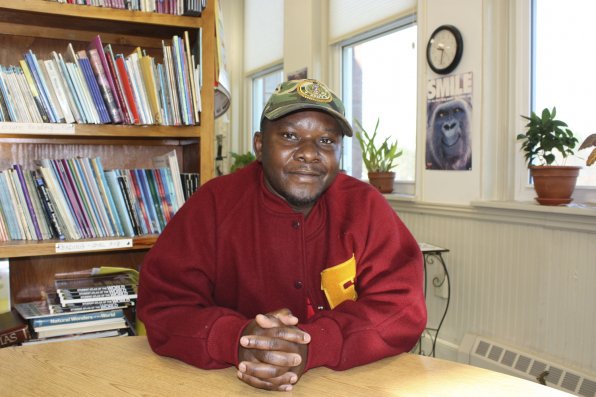
<strong>Elie Kabenga</strong></p><p>Kabenga is from Rwanda, and had to leave his family behind when he came to the United States.<br />“For refugees, it’s difficult to celebrate. In Rwanda, it was easier to celebrate Christmas with friends and family. Here, there are no friends, no family. I’ll call my family (in Rwanda) and say ‘Happy Christmas!’ ”
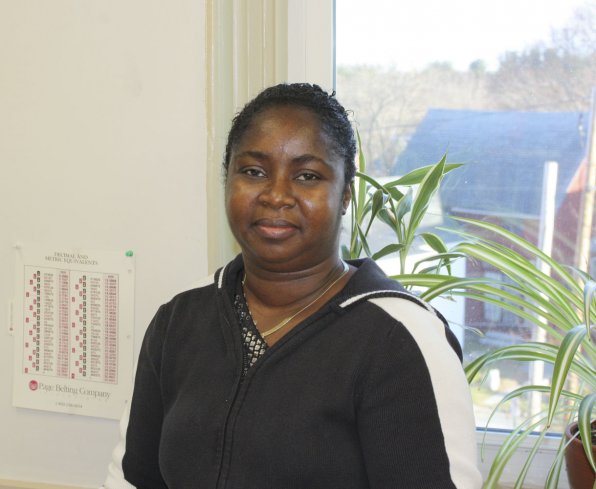
<strong>Linda Tarwo</strong></p><p>Tarwo is from West Africa, and she grew up celebrating Christmas the old-fashioned way.<br />“On Christmas Day, I always love to go to church. It’s always a big day, it’s the birth of Christ. John 8:12 says: ‘I am the light of the world, he who follows me shall never walk in darkness, but shall have the light of life.’ Everybody knows that God created us – even Satan knows – so we’re happy for everything he gave us. He gave us so much. So, we always celebrate Christmas by giving thanks, by singing and rejoicing.”
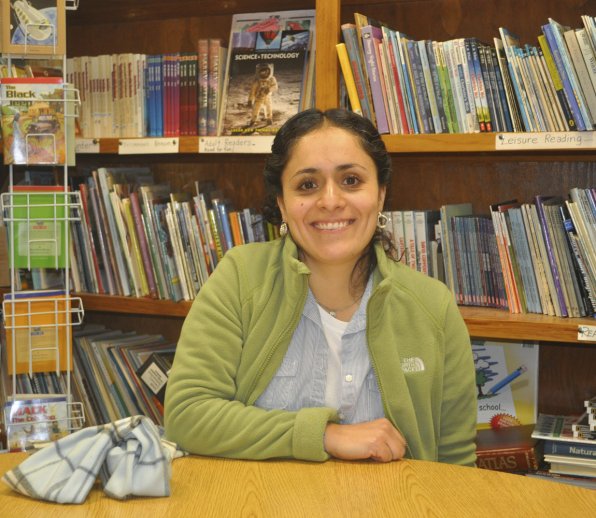
<strong>Mitzi Calderon</strong></p><p>In Calderon’s home in Mexico City, the Christmas celebration begins a week before the holiday with Las Posadas. A different family hosts a party, or posada, each night of the week leading up to Christmas, entertaining the rest of the town with a festive production.<br />“We make pinatas, and make food for the whole town,” she said, noting that as many as 60 people will usually attend.<br />“Here, it’s more for children, because they have Santa here” Calderon said of America. “We have dinner at 11 p.m. in Mexico city, so it’s different here.”
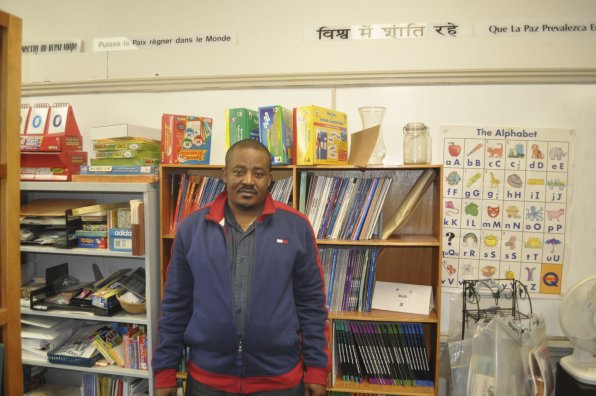
<strong>Claude Lompufu</strong></p><p>Lompufu is from Congo, where elections – and ensuing war – often occur at the same time as Christmas.<br />“Because of war, we cannot celebrate too much. There’s no way to celebrate.”<br />He and his family have found the situation much different in America.<br />“It’s good to celebrate Christmas here. Me and my wife and our four kids, we enjoy the family here because we have peace.”
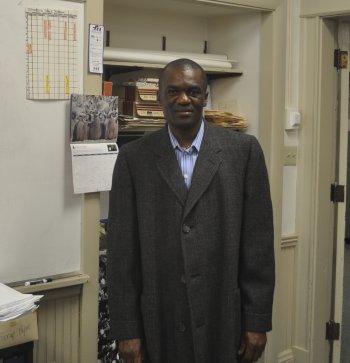
<strong>Bosa Joachum</strong></p><p>Joachum celebrated Christmas in Congo with family and friends, enjoying a meal that included rice, plantains, chicken and fish.<br />“You go to a party with food and everybody would eat and dance. People buy something for family, like new clothes.”<br />In America, Joachum has celebrated Christmas in Manchester at a gathering with several other Congolese people.
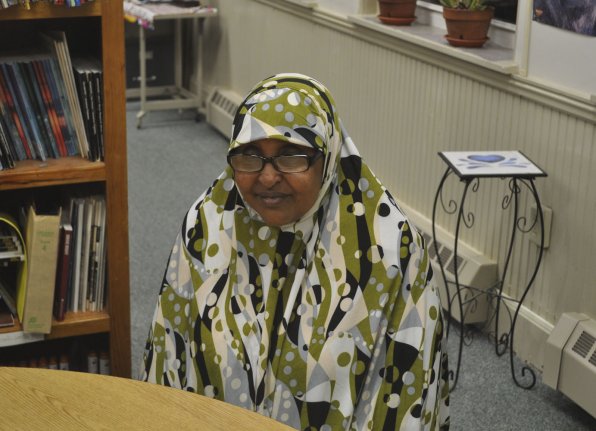
<strong>Iqra Adan</strong></p><p>Adan is from Somalia, and celebrates the Muslim tradition of Ramadan, as well as the traditional celebration thereafter, which begins with prayer and eating “of sweets, like cake,” she said.<br />She still celebrates that way in Manchester, often doing much of the cooking herself, she said
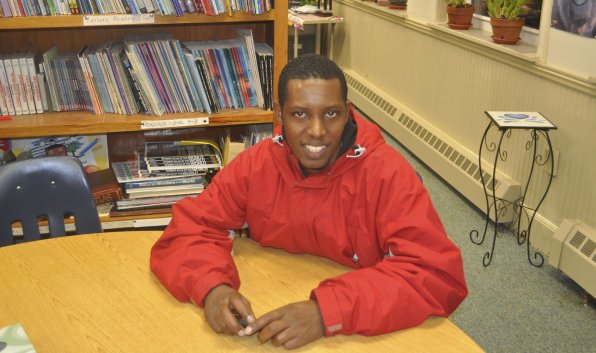
<strong>Mike Nziza</strong></p><p>Faith is the center of the Christmas celebration for Congo native Nziza.<br />“We go to church. We always go to pray and celebrate because it’s a holy day, the day when we got saved. We celebrate as joy.”<br />Nziza has been able to continue that tradition in America, meeting in Manchester with many of the friends he’s made. But he feels much safer here.<br />“There’s no big difference, except in my country there is no good security. It’s the same celebration, but there we have political conflict.”
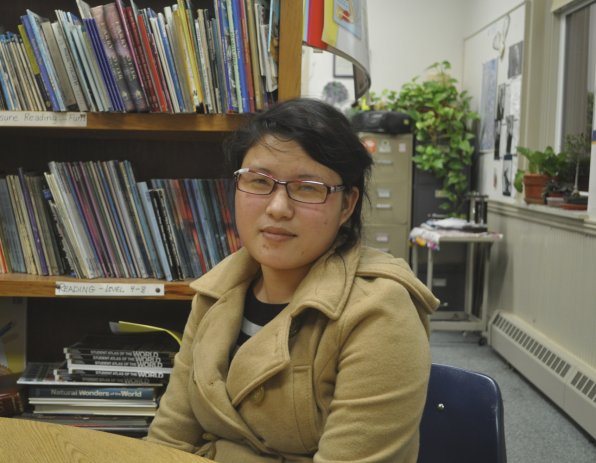
<strong>Chandra Chhetri</strong></p><p>Chhetri, from Bhutan, didn’t celebrate Christmas at home. Instead, the biggest holiday was the Hindu tradition of Dashain, a 15-day festival.<br />“On the first day, we put the tika on our home. On the second day, we put the tika on relatives home. We cook a whole goat, and as many as 17 or 18 family members come and dress up in new clothes,” she said.<br />In America, Chhetri has continued to celebrate Dashain, but has also adopted some local traditions.<br />“I have a son, and we do celebrate Christmas.”
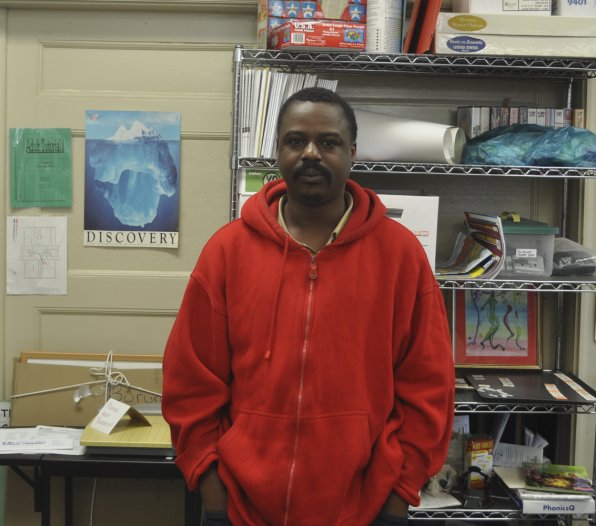
<strong>David Ishimwe</strong></p><p>Ishimwe has been surprised by the differences in Christmas celebrations in America as compared to his home country of Rwanda.<br />“Here, you have too many gifts for children. We don’t have too many things to celebrate (in Rwanda) because it’s a poor country.”<br />That doesn’t make Christmas any less important. Faith is the biggest part of the holiday in Ishimwe’s life.<br />And there’s at least one difference he’s been able to enjoy.<br />“The children are very, very happy, because they see decorations everywhere. In Rwanda, we don’t have decorations or a Christmas tree.”
The Insider visited Second Start School to find out what kind of holiday traditions Concord’s perse immigrant population brought with them from the many lands they call home, and how they celebrate now that they are Americans.














